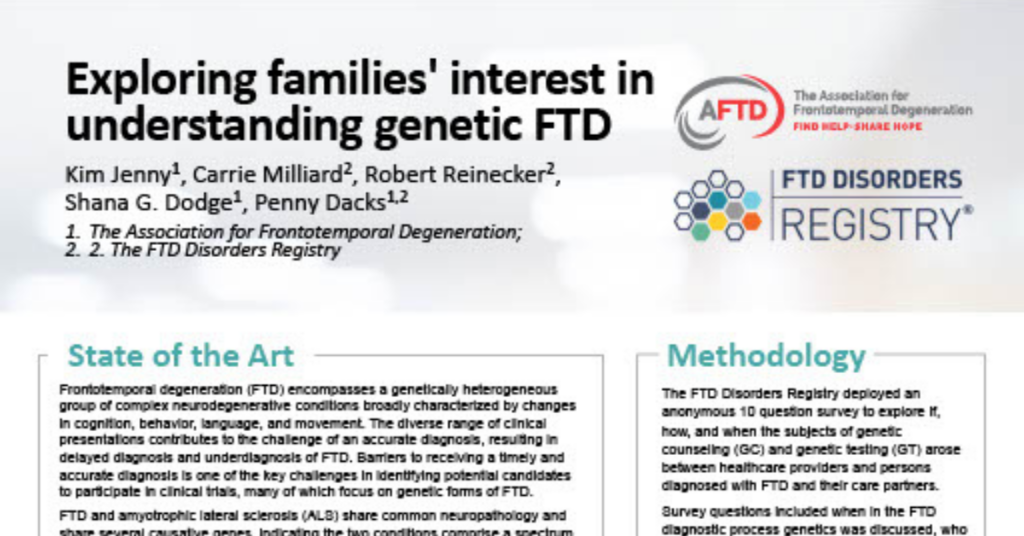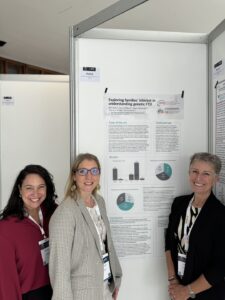PRESS & NEWS
Research Highlight: Exploring Families’ Interest in Understanding Genetic FTD

Kim Jenny, Manager of Genetic Initiatives for the Association for Frontotemporal Degeneration (AFTD), presented the results as a poster at the International Society for Frontotemporal Dementias (ISFTD)’s annual conference.
 Earlier this year, the FTD Disorders Registry deployed an anonymous 10 question survey to explore if, how, and when the subjects of genetic counseling and genetic testing arose between healthcare providers and persons diagnosed with FTD disorders and their care partners.
Earlier this year, the FTD Disorders Registry deployed an anonymous 10 question survey to explore if, how, and when the subjects of genetic counseling and genetic testing arose between healthcare providers and persons diagnosed with FTD disorders and their care partners.
Kim Jenny, Manager of Genetic Initiatives for the Association for Frontotemporal Degeneration (AFTD), presented the results as a poster at the International Society for Frontotemporal Dementias (ISFTD)’s annual conference in Amsterdam this September.
Kim found that many families are interested in or at least open to discussing genetics.
However, based on the survey results, a positive family history had minimal influence on if genetic counseling and genetic testing were offered even when the family history includes more than one person with an FTD spectrum diagnosis.
In fact, the data suggested a positive family history had minimal impact on when in the diagnostic process the subject of genetics was raised.
Genetic counseling and testing can support well-informed decisions, shorten the diagnostic journey, ensure accurate diagnoses, alleviate uncertainty, guide future life planning, and provide opportunities to join disease-modifying clinical trials.
For rare diseases like FTD, clinical trials often face challenges in finding enough eligible participants. Offering genetic counseling with the option of testing to individuals diagnosed with FTD would help families make informed choices about testing and open opportunities to participate in trials targeting specific genetic variants linked to FTD disorders.
Together we can find a cure for ftd
The FTD Disorders Registry is a powerful tool in the movement to create therapies and find a cure. Together we can help change the course of the disease and put an end to FTD.
Your privacy is important! We promise to protect it. We will not share your contact information.



